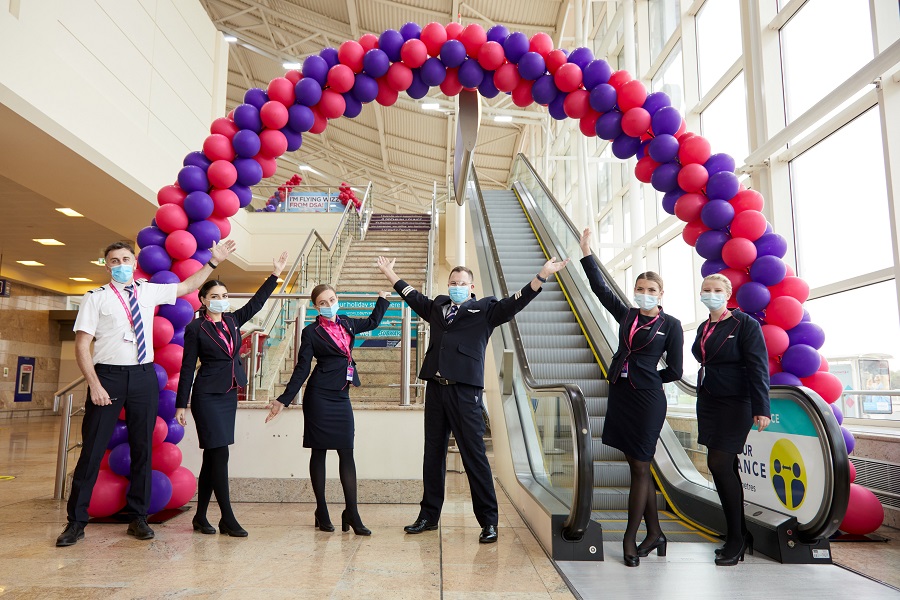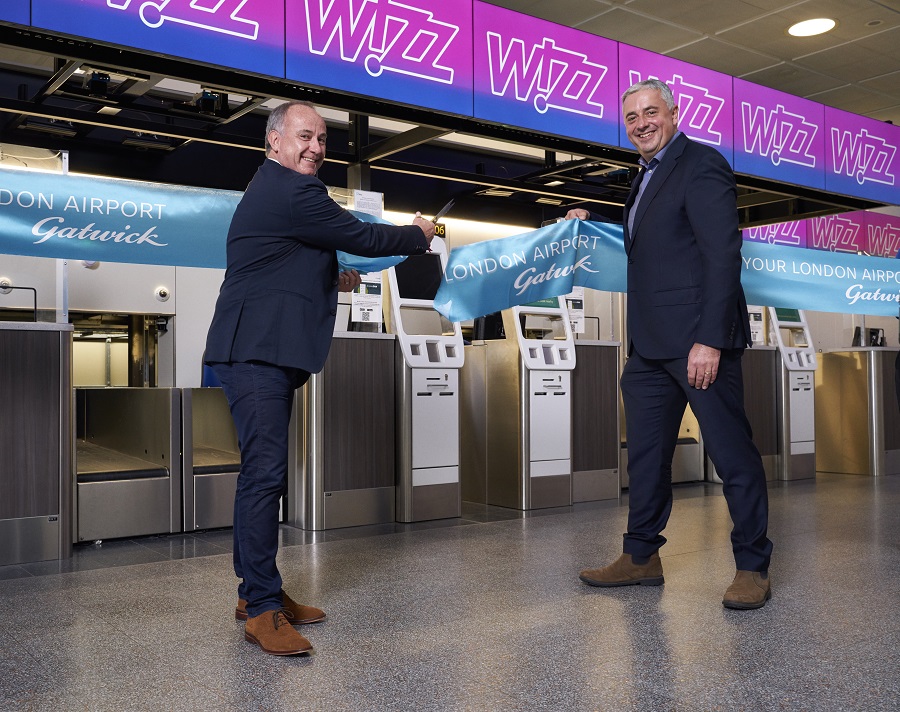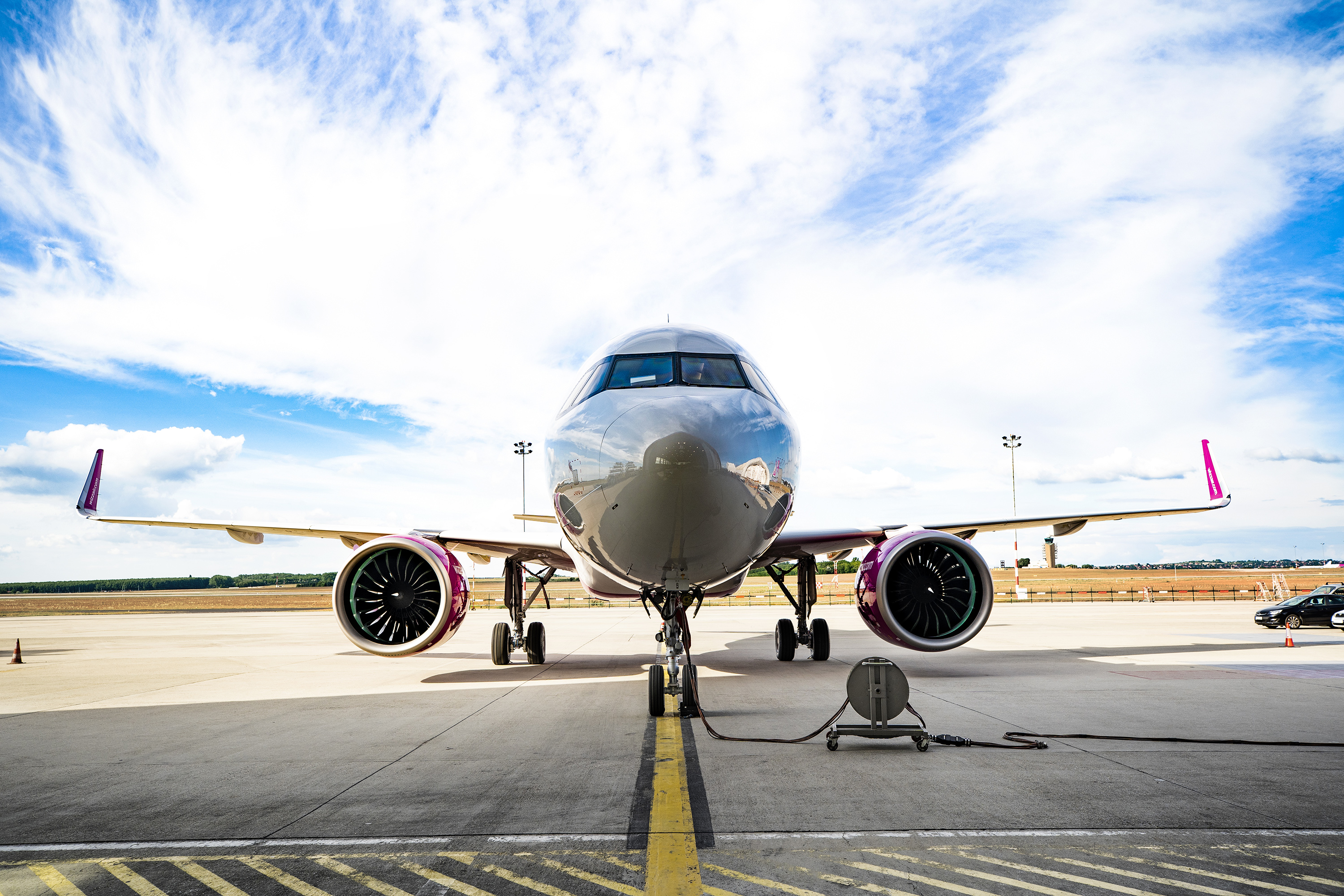
Breaking Travel News interview: Owain Jones, managing director, Wizz Air UK
Amid the torrent of negative headlines from the UK aviation sector over the past few months, a few bright moments have stood out.
One was the possible return of Flybe.
But, on the whole they have come from Wizz Air, with the low-cost carrier seeking to expand its operations across Europe while others retrench in the face of the Covid-19 pandemic.
In recent days, the airline has opened its second and third UK bases – at Gatwick and Doncaster Sheffield, respectively – building on its established position in Luton.
As Owain Jones, managing director for Wizz in the UK, tells Breaking Travel News, the carrier is able to swim against the tide due to its prudent planning and strong financial position.
“The key thing for Wizz Air is that we have a very strong financial platform on which to build,” he explains.
“When Covid-19 started, there were two mindsets you could have – either sit back and become a hostage to fortune, hoping that other people sort your troubles out for you.
“Or, you become master of your own destiny, and try and make the best of what you have got – with Wizz, the latter is the course we chose.
“There were a number of expansion opportunities we had been looking at for some time and, it seems strange to say it now, aircraft supply had been an issue.
“We had a long list of options we could not fully explore, but, with the spare capacity now in the system, we are able to bring those opportunities forward.”

Wizz Air launched a series of new routes from Doncaster Sheffield earlier this month
At Doncaster Sheffield this means adding flights to Tenerife, Malaga, Larnaca and Lublin as Wizz bases an aircraft at the airport for the first time.
The move is part of a wider expansion into outbound leisure routes from the UK, launched by the airline earlier this year from its stronghold at Luton.
Jones explains: “Doncaster Sheffield is an airport where we have been operating for the past 14-years, following its conversion from RAF Finningley to Robin Hood.
“We had been operating ten routes inbound from central Europe this summer, but we have now decided to base an aircraft there and add a further 13 routes.
“These are a mixture of ‘visiting friends and family’ traffic, and UK leisure outbound, which is a market we have joined for the first time this summer.
“People liked what offered, they liked the prices, and so we decided to expand.”
Things are a little more complex at Gatwick, where Jones argues Wizz is prevented from expanding by a European directive waiving slot use regulations until next spring.
“Our presence in London is centred on Luton, where we are the biggest carrier,” he continues.
“But Luton Airport has infrastructure and planning constraints, so we want to grow elsewhere in London – the city is a key part of our European business.
“Gatwick is the obvious choice, with its different catchment area to our base at Luton.
“We have got slots to base one aircraft there, but this is no more than a foot in the door – but as far as other airlines are concerned, they should consider this a statement of intent.”
He continues: “The issue at Gatwick is that the slots are being blocked by airlines that have either shutdown their operation or are planning to significantly reduce their operation.
“The extension of the 80/20 slot waiver into winter is now doing the airport out of significant business.
“Gatwick during the week is now carrying 5,000 people, maybe 20,000 at weekends, which is a fifth of what they should be seeing.
“But they are hostage to airlines that are slot blocking.
“We want to expand, we want more slots, and we think the government should act – and we do not believe there should be a further slot use alleviation into the summer next year.”

Jones, left, and Gatwick chief executive Stewart Wingate, celebrate the opening of the new Wizz Air base
Wizz has been vocal in calling for the slot waiver to be scrapped, arguing it is anti-competitive to allow airlines to hoard assets they cannot use.
“The slots should be made available for any airline positioned to take advantage of any rebound in travel,” adds Jones.
“If you look at the airlines that are there, they have significantly weaker financial positions than Wizz, and we have to question whether they can get themselves back in the air.
“I do not think that should be a problem for the public.
“We will be standing ready as and when there is a recovery, we want more access to Gatwick, and we think the market is crying out for more competition.”
A lack of coordination between European governments has also hamstrung Wizz – and seen it cut its workforce by a fifth – as the airline battles to get back in the air in the wake of the Covid-19 pandemic.
Though UK authorities unveiled plans for a global travel taskforce earlier this month, Jones holds out little hope it will be able to take sufficient action to restart the industry.
“What is hitting demand is the unpredictability of flying currently, not just in the UK, but across Europe,” he explains.
“The completely uncoordinated mess of travel restrictions hurts demand.
“That said, it is certainly welcome the government is now doing something with the global task force - let us not forget we are now eight months into the pandemic.
“The focus will be on shortening quarantine, but we think that as long as there is any quarantine in place that will continue to dampen demand.
“The government should be looking at aligning its position with European counterparts on what can be acceptable in terms of a risk-based approach to allowing people to travel across borders.
“The focus, therefore, should be on standardised pre-flight testing, rather than looking to tweak quarantine measures.
“Change is welcome – making quarantine more flexible is welcome – but we need a step-change on the use of testing.”

Until the government is able to offer firm steps forward, Wizz, and the wider UK aviation sector, will be unable to fully recover.
In the interim, the carrier is focused on matching capacity to demand as quickly as possible.
Jones concludes: “One of the things that has set Wizz apart over the last six months is our agility – we have been able to switch capacity very quickly as unpredictable quarantine decisions are made.
“It requires the commercial team to be on top of every decision made by every government in every base country in which we operate.
“Our colleagues who actually operate the aircraft also have to respond, with rosters drawn up at short notice.
“We are lucky in that we have a team which is willing to accept these changes because, frankly, they would far rather be flying than sitting around on government support.
“People want to go away – and this is something we have been arguing - people want to travel.”
More Information
Wizz Air operates a fleet of 134 Airbus A320 and A321 aircraft from its headquarters in Hungary.
The airline carried 40 million passengers in the year to March – with more information on the official website.

